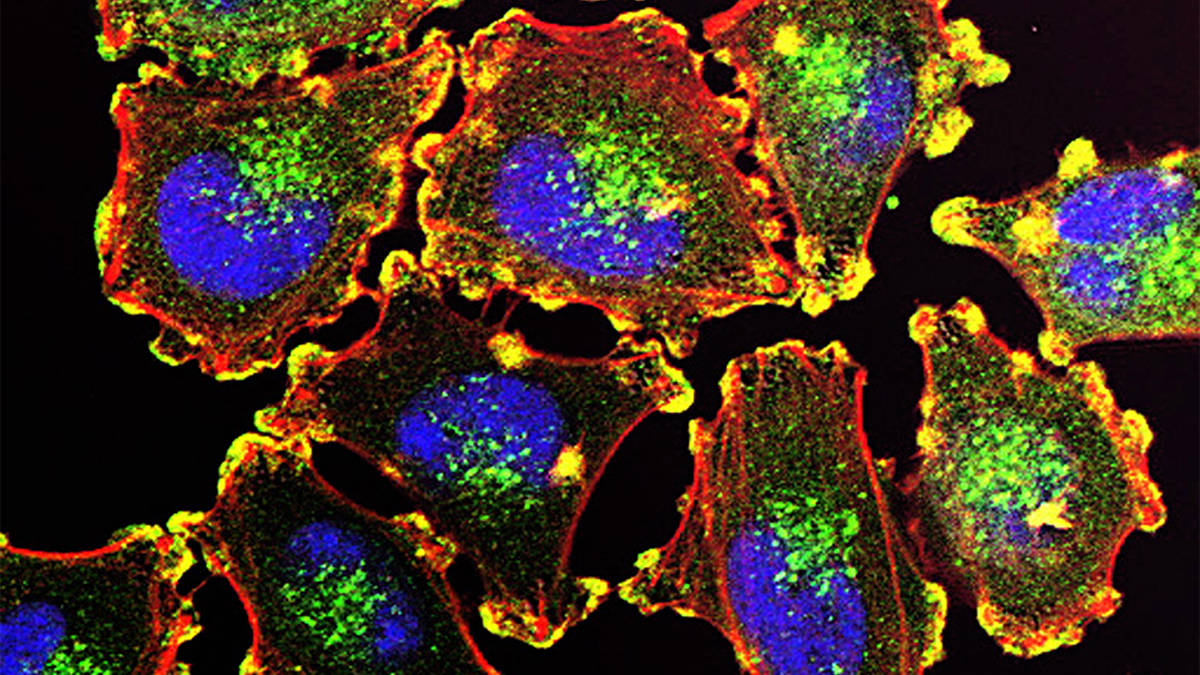 |
| Metastatic melanoma cells (Image: NCI Center for Cancer Research Creator: Julio C. Valencia) |
CANCER DIGEST – Oct. 2, 2022 – Giving immunotherapy followed by targeted therapy boosts survival in certain advanced melanoma patients by 20 percent, according to results of an ongoing clinical trial.
The national DREAMseq clinical trial comparing two different therapy approaches, has shown that for advanced melanoma cancer in people with a specific gene mutation, there was a 20 percent increase in two-year survival when patients were given a combination immunotherapy before administering a targeted therapy. The results were so dramatic the trial was stopped early in order to allow all patients to benefit from the better regimen.
The clinical trial led by oncology professor Michael Atkins, MD, deputy director of Georgetown Lombardi Comprehensive Cancer Center, is part of large consortium of oncology researchers, called ECOG-ACRIN that includes nearly 1300 academic and community-based cancer centers across the U.S. The findings of the trial confirm early results presented last December at the meeting of the American College of Clinical Oncology (ASCO) and were published in the Sept. 27, 2022 Journal of Clinical Oncology.
The trial involved 265 patients with advanced melanoma, the most aggressive form of skin cancer, who also had a specific gene mutation called BRAFV600. Approximately 40 percent to 60 percent of melanoma patients have this mutation. It is most common in patients whose tumors arise on skin without chronic sun-induced damage, according to research in the journal Cell Cycle.
The patients were randomly assigned to one of two therapy approaches. One group received the drugs dabrafenib/trametinib (Tafinlar® and Menkinist®) targeting the BRAF tumors first, followed by the immunotherapy drugs nivolumab/ipilimumab (Opdivo® and Yervoy®). The second group received the immunotherapy drugs first, followed by the targeted therapy.
After two years the results showed that 72 percent of the immunotherapy-first group survived compared 52 percent of the targeted therapy-first group. As a result of the dramatic 20 percent advantage to patients receiving immunotherapy first, the trial was stopped so that all new patients could be given the better combination regimen.
Sources: Georgetown Lombardi Comprehensive Cancer Center press release and the Journal of Clinical Oncology


No comments:
Post a Comment